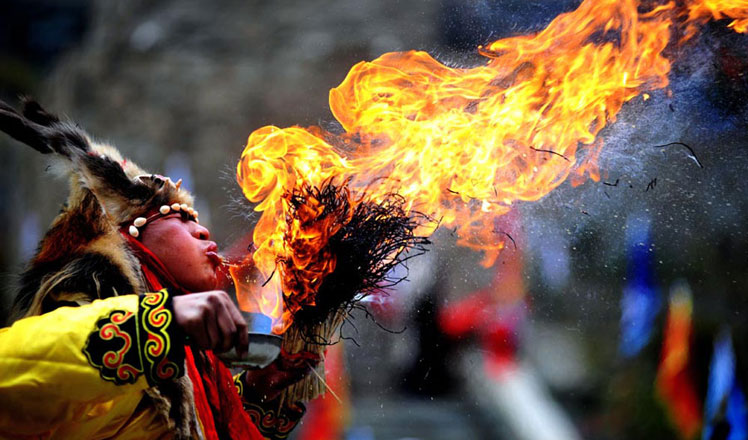US uses fake college to charge 21 in visa sting
Updated: 2016-04-06 12:09
By HENG WEILI in New York(chinadaily.com.cn)
|
|||||||||
It was an alleged "pay-to-stay" student and worker visa scheme that could result in a stay behind bars.
Twenty-one brokers, recruiters and employers from across the United States, who allegedly conspired with more than 1,000 foreign nationals - mostly from China and India - to fraudulently maintain student visas and in some cases worker visas were arrested on Tuesday by federal agents, the US attorney for New Jersey announced.
The defendants were apprehended in New Jersey and Washington state by agents with US Immigration and Customs Enforcement (ICE) and Homeland Security Investigations (HSI). Charges included conspiracy to commit visa fraud and conspiracy to harbor aliens for profit.
" 'Pay to Stay' schemes not only damage our perception of legitimate student and foreign worker visa programs, they also pose a very real threat to national security," said Paul Fishman, US attorney for New Jersey.
Of the 21 defendants, seven are from New York (three from Flushing, Queens, and two from Manhattan), seven from New Jersey, five from California, one from Illinois and one from Georgia.
"Individuals engaged in schemes that would undermine the remarkable educational opportunities afforded to international students represent an affront to those who play by the rules. These unscrupulous individuals undermine the integrity of the immigration system," said ICE Homeland Security Investigations Special Agent in Charge Terence S. Opiola.
The defendants, many of whom operate recruiting companies for international students, were arrested in attempts to enroll foreign nationals as students in the University of Northern New Jersey (UNNJ), a purported for-profit college ostensibly located in Cranford, New Jersey.
However, "unbeknownst to the defendants and the foreign nationals they conspired with … the UNNJ was created in September 2013 by HSI federal agents", the statement said.
The UNNJ had no instructors or curriculum and held no classes. It "operated solely as a storefront location with small offices staffed by federal agents posing as school administrators".
The so-called university claimed it was authorized to issue a "Certificate of Eligibility for Nonimmigrant (F-1) Student Status - for Academic and Language Students," also known as Form I-20. The form certifies that a foreign national has been accepted to a school and would be a full-time student; the I-20 usually allows legitimate foreign students to get an F-1 student visa.
HSI agents identified hundreds of foreign nationals, mostly from China and India, who had previously entered the US on F-1 non-immigrant student visas to attend other Student and Exchange Visitor Program (SEVP)-accredited schools.
Through various recruiting companies and businesses in New Jersey, California, Illinois, New York and Virginia, the defendants enabled 1,076 of the foreigners - all willing participants - to fraudulently maintain their nonimmigrant status in the US on the pretense that they continued full-time studies at UNNJ, the US attorney’s statement said.
The defendants solicited UNNJ administrators to participate, and during dealings with undercover agents, they acknowledged that none of their foreign national clients would attend courses, earn credits or make academic progress toward a degree.
The defendants sought to enroll their clients in UNNJ to fraudulently maintain student visa status in exchange for kickbacks or "commissions", the statement said.
They also created false records, including transcripts, attendance records and diplomas purchased by their clients to deceive immigration authorities, the statement said.
In addition, the defendants used UNNJ to fraudulently obtain work authorization and work visas for clients. As a result, numerous defendants were able to outsource their foreign national clients as full-time employees with various US-based corporations, the statement said.
Other defendants devised phony IT projects at the school. They then created false contracts, employment verification letters and transcripts. The defendants then paid the undercover agents thousands of dollars to put the school’s letterhead on the phony documents, to sign them as school administrators and to go along with the scheme, the statement said.
The defendants then used the documents to fraudulently obtain labor certifications issued by the US secretary of labor and then to petition the US government for H1-B visas for non-immigrants.
The documents were then submitted to the US Customs and Immigration Services (USCIS). In most of the cases, the foreign worker visas were not issued because USCIS was informed of the undercover operation.
The charges of conspiracy to commit visa fraud and making a false statement each carry a maximum penalty of five years in prison and a $250,000 fine. Conspiracy to harbor aliens for profit and H1-B visa fraud each carry a maximum of 10 years in prison and a $250,000 fine.
Today's Top News
Social media fury after woman claims attack in hotel
Germany rules out debt relief for Greece
Li: Tax reform to boost vitality of real economy
First wave of migrants returned to Turkey
Once-endangered pony makes comeback
Bookshop worms way into community
A fresh start
Bookshops reinvent themselves
Hot Topics
Lunar probe , China growth forecasts, Emission rules get tougher, China seen through 'colored lens', International board,
Editor's Picks

|

|

|

|

|

|







